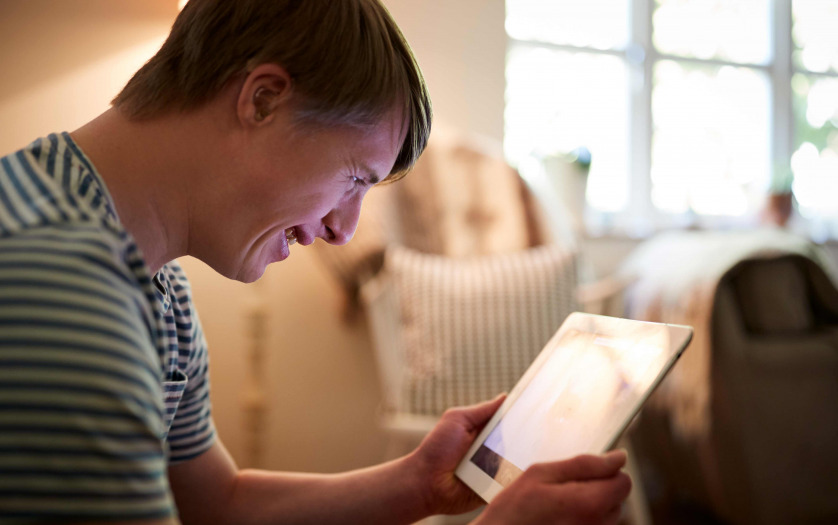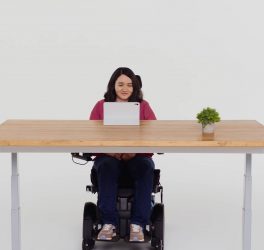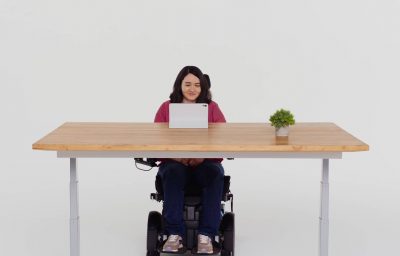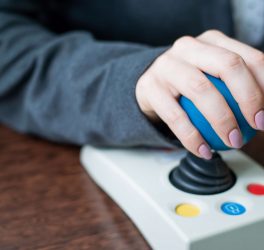
Dr. Esther Murphy, School of Engineering at Trinity, has been awarded €2.2million 3 years education innovation programme funding from EIT Health to lead a multidisciplinary EU digital inclusion programme for adults with intellectual disabilities: Digi-ID PLUS.The digital skills education programme will support better health and social inclusion outcomes for adults with intellectual disabilities.
Digi-ID PLUS is a new EIT Health multidisciplinary user centred EU innovation project that joins with partners across Europe. At the heart of the project is an authentic user centred and led design process. Embedded within the project team is the Citizen Advisory Panel (CAP), individuals with intellectual disabilities and accessibility needs who are paid experts by experience users passionate about using technology to enhance their quality of life.
The Digi-ID PLUS programme launched last week with the first task to reunite their wonderful Citizen’s Advisory Panel. When asked about the impact of being part of the Digi-ID PLUS team, many shared their positive experiences and what it meant for them, emphasising the importance of valuing their voices as paid experts and to have the possibility to help the community with their work.
“I feel our work will help so many people use technology. I felt very important and proud as I got paid to be an advisor. It’s great to continue our work in this amazing group together.” Christina Burke, CAP member.
“I love collaborating with this group again! It is important that people like me are included in the research.” said Fionn Crombie Angus, CAP member.
“With our work in Digi-ID we could help people with intellectual disability making things easier to read and feel included, and we could help each other.” said Brian Hogan, CAP member.
Mei Lin Yap, CAP member said: Being part of the Digi-ID citizen advisory panel it is an honour. I find so empowering to share my experiences with everyone in the group and that people are learning, growing, realizing their potential and what they are capable of doing. I love to see that the people with disabilities are at the core of the co creation of developing this digital education program.
The Citizen Advisory Panel’s supporters also shared the impact of new opportunities to expand work together with this 3 year programme recognising the power of enabling people with intellectual disabilities to participate at a working pace that accommodated their needs and listening and responding to these to ensure the programme is accessible.
When we are trying to tackle any challenge faced by someone, we have to recognise that the challenge is faced by the whole person (not just a part of their body) in an environment that is created by and populated by other people. It’s only by pooling the insights and expertise of as many people as possible that we can really understand the challenge and generate solutions that will work for the person, in the most holistic sense of that word, rather than a solution that considers only a task. So interdisciplinary collaboration is not an optional extra – it is fundamental to arriving at good solutions.
The project is currently developing an accessible digital skills e-learning video platform with and for people with accessibility needs in a co-innovation process with a wide network of health and education providers to address the digital literacy and access challenge to ensure better health, well-being and inclusion outcomes: Digi Academy.
The awarded 3 years programme will expand the partnership across Europe, to involve industry leader Microsoft, to further develop the solution to include people with wider range of people accessibility needs, and co design new innovative features focusing on adaptive learning and AI support.
The heart of Digi-ID is listening to the digital inclusion needs and experiences of people with intellectual disabilities. We are so excited that thanks to this new funding we can co-create and co-innovate our accessible app together, train new digital educators to be the future faces and voices of the programme, and embed new innovation, to enable people to lead the digital lives of their choice for better health, well-being and inclusion outcomes.
To learn more about their project, go to https://www.tcd.ie/mecheng








